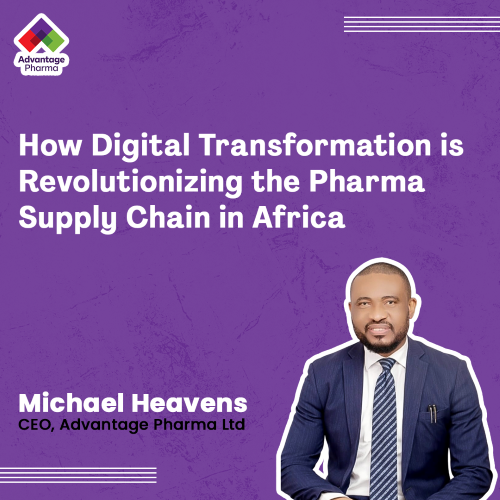The pharmaceutical industry is transforming significantly as digital technologies reshape how drugs are developed, manufactured, packaged, and delivered. This transformation has significant implications for the pharma supply chain, which is the network of processes and activities that ensure the availability and quality of medicines for patients. The pharma supply chain faces many challenges, especially in Africa, where there is a high demand for affordable and effective treatments and a lack of infrastructure, regulation, and skills. This article will explore how digital transformation can help overcome these challenges and create value for the pharma industry and the patients in Africa.
What is digital transformation, and why does it matter for the pharma supply chain?
Digital transformation is using new technologies to improve the pharma supply chain’s efficiency, quality, and security. It can help optimize logistical processes, facilitate regulatory compliance, and ensure that the correct treatments reach patients best.
Some examples of digital technologies that are transforming the pharma supply chain are:
– Blockchain: a distributed ledger system that can track and verify transactions, prevent counterfeiting, and enhance traceability.
– Artificial intelligence: a branch of computer science that can analyze data, generate insights, and automate tasks. It can help with demand forecasting, inventory management, and drug discovery.
– Internet of Things: a network of connected devices that collect and exchange data. It can help with temperature monitoring, quality control, and remote diagnostics.
Digital transformation can bring many benefits to the pharma supply chain, such as:
– Improved access: reaching more patients with affordable and quality medicines.
– Enhanced efficiency: reducing costs, waste, and errors in the supply chain.
– Increased transparency: ensuring accountability, compliance, and safety in the supply chain.
What are the challenges and opportunities for digital transformation in the pharma supply chain in Africa?
Africa has vast potential for digital transformation in the pharma supply chain. It has a large and growing population, a high disease burden, and a low penetration of healthcare services.
However, Africa also faces many challenges in adopting digital transformation, such as:
– Infrastructure gaps: lack of reliable power, internet, and transportation networks.
– Regulatory barriers: lack of harmonized standards, policies, and frameworks across countries.
– Skills shortages: lack of trained and qualified personnel in digital technologies.
To overcome these challenges, Africa needs to invest in building digital capabilities, fostering collaboration, and creating an enabling environment for innovation.
Some opportunities for digital transformation in the pharma supply chain in Africa are:
– Leveraging mobile platforms: using smartphones and tablets to access information, communicate with stakeholders, and order medicines online.
– Developing local solutions: creating customized applications and platforms that address African markets’ and customers’ specific needs and preferences.
– Partnering with tech companies: Collaborating with global and local tech companies to access expertise, resources, and networks.
What are some examples of organizations using digital transformation in the pharma supply chain?
Many organizations use digital transformation to improve their pharma supply chain performance and impact. Here are some examples:
– Zipline: a US-based startup that uses drones to deliver medical supplies such as blood products, vaccines, and medicines to remote areas in Rwanda and Ghana. It also uses artificial intelligence to optimize its flight routes and inventory management.
– MediLedger: a US-based consortium that uses blockchain to create a secure and transparent network for tracking pharmaceutical products from manufacturers to distributors to pharmacies. It also helps with verifying product authenticity and complying with regulatory requirements.
– mPedigree: a startup that uses mobile phones to verify the authenticity of medicines by scanning a unique code on the packaging. It also uses artificial intelligence to detect counterfeit products and alert consumers.
– AI4Good: an initiative that uses artificial intelligence to address social challenges such as health, education, agriculture, and environment. It also provides training and mentorship for young African innovators in AI.
Digital transformation is not a one-time event but a continuous journey. It requires a strategic vision, a customer-centric mindset, and a culture of experimentation. The pharma industry in Africa has a unique opportunity to leverage digital technologies to create value for itself and its customers. By embracing digital transformation, the pharma supply chain in Africa can become more agile, resilient, and impactful.

 We use cookies to ensure that we give you the best experience on our website. If you continue to use this site we will assume that you are happy with it.
We use cookies to ensure that we give you the best experience on our website. If you continue to use this site we will assume that you are happy with it.